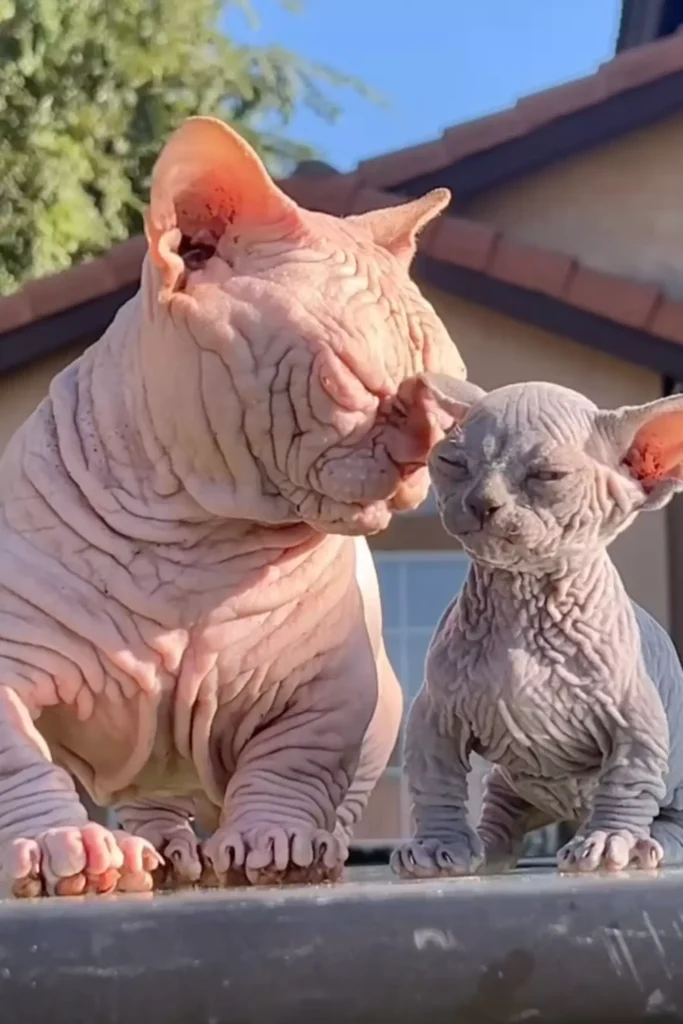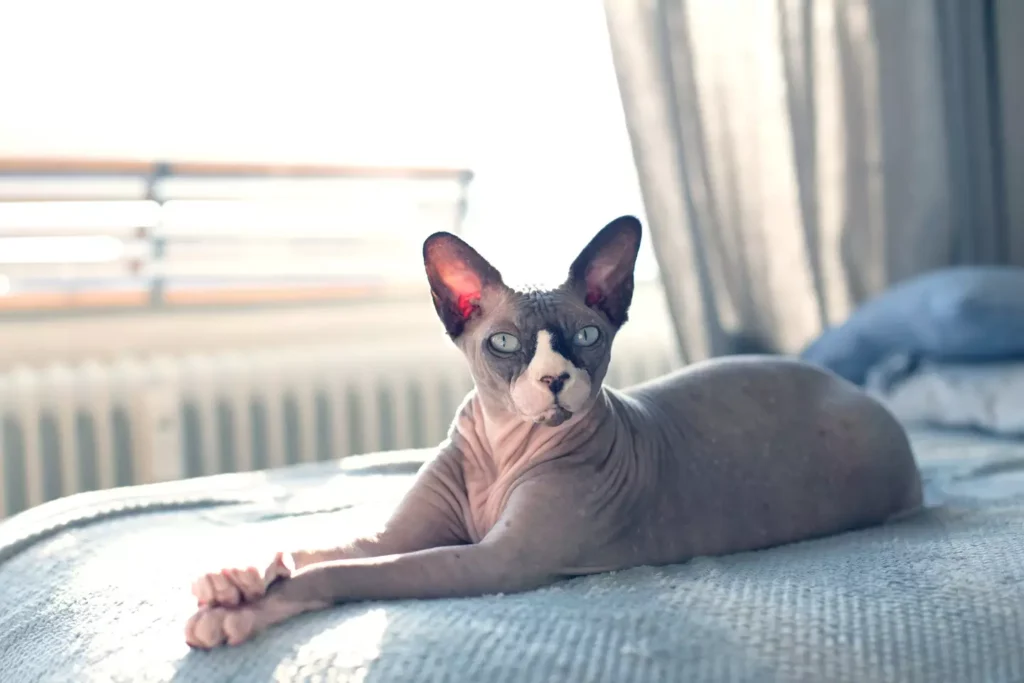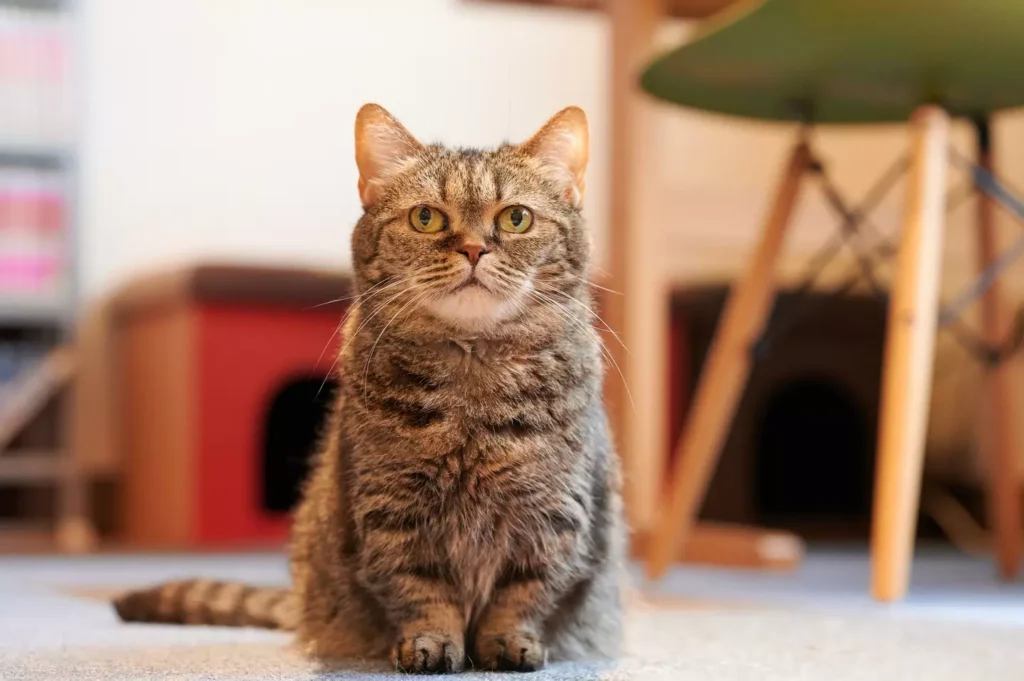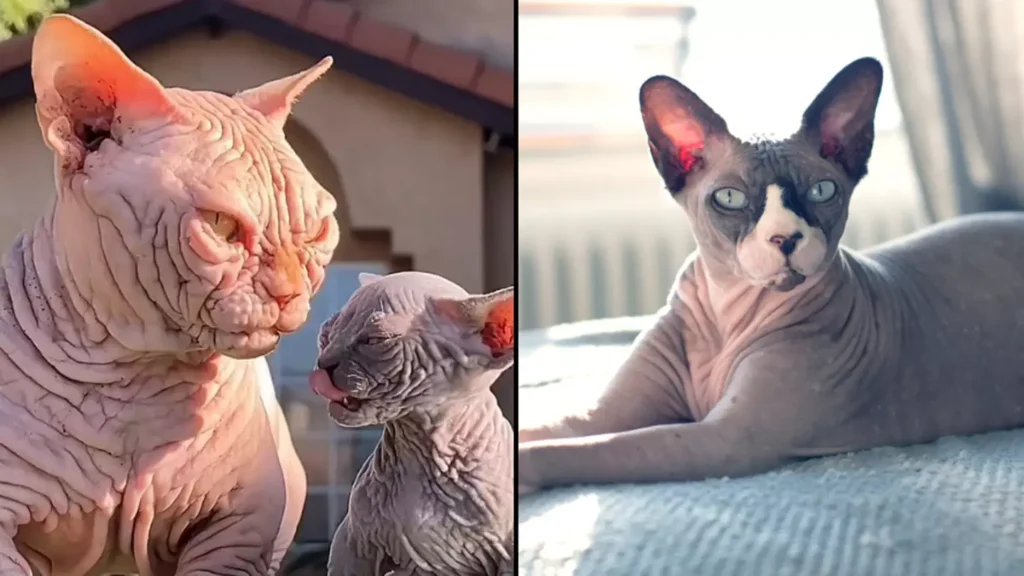Animal behaviour experts have warned against prioritising aesthetics over health when it comes to purchasing ‘fashion’ felines like so-called ‘XL Bully Cats’.
You may already be aware, but since February, it has been a criminal offence to own an XL Bully dog in both England and Wales without an exemption certificate following numerous attacks over the UK.
The 2024 ruling, filed under the Dangerous Dogs Act 1991, saw 61,000 exemption applications being submitted through the UK government’s portal before the deadline, as per BBC.
But you may be surprised to hear that the breeders have now created a cat counterpart to the prohibited canine, which has continued to raise the hackles of animal behaviour experts.
The Telegraph reports that these kitties have been reproduced by mixing the gene that causes hairlessness in the popular Sphynx breed along with the gene responsible for the short legs of Munchkin cats.
The RSPCA has also warned these ‘exaggerated’ bullycats, which feature ‘excess skin folds’, are vulnerable to adverse skin conditions and that they could suffer from intense joint strain, as per The Independent.

“Bullycats are likely to suffer similarly shortened lives to those reported from a recent RVC VetCompass paper in Sphynx cats that lived just 6.7 years compared to an average of 11.7 years in cats overall,” Dr Dan O’Neill, Associate Professor of Companion Animal Epidemiology at the Royal Veterinary College (RVC), said to Naturewatch Foundation.
“The advice to anyone thinking of acquiring a cat or a dog is to always put the welfare of the animal first and to stop and think before acquiring an animal with an extreme and unnatural body shape that does not exist commonly in nature.”
Dr Grace Carroll, who specialises in animal behaviour and welfare at Queen’s University Belfast’s School of Psychology, also stated that prospective pet owners need to be aware of the risks associated with this popular Munchkin-Sphynx breed.

“Consumers hold purchasing power,” she began. “We can discourage breeders from prioritising aesthetics over the health and welfare of the animals by refusing to buy breeds with extreme traits.
“A fashion toward ethical breeding could ensure future cats are healthier, happier and free to enjoy natural feline behaviour like climbing, jumping and lounging in the sun. We should let cats be cats.”
A 2018 study conducted into mutation breeding by Marjan van Hagen and Jeffrey de Gier, animal welfare and reproduction experts at Utrecht University in The Netherlands, found that it can put cats at a disadvantage in fights.
They also found that like the Sphynx, the cats lack whiskers, which most breeds rely on for communication, navigation and for gauging spatial dimensions, writes The Conversation.

The Cats Protection charity has added that the legs Munchkin cats boast are a ‘genetic defect’ which can lead to ‘painful arthritis and cause problems with their general mobility’.
“Bully cats, being both hairless and short-legged, may face twice the number of challenges encountered by sphynx and munchkin breeds.” echoed Dr Carroll.
Due to the rising popularity of the ‘bullycat’, the RSPCA has issued a statement urging ‘fellow cat lovers’ to adopt a feline in need, rather than buy the mutant breed.
“We understand that their emerging presence on social media may fuel a demand for these kinds of cats but we would urge fellow cat lovers to consider adopting the many rescue cats in our care instead of buying from a breeder,” a spokesperson told The Independent.
“We would also urge breeders to prioritise the health and welfare of any animal over the way they look.”





